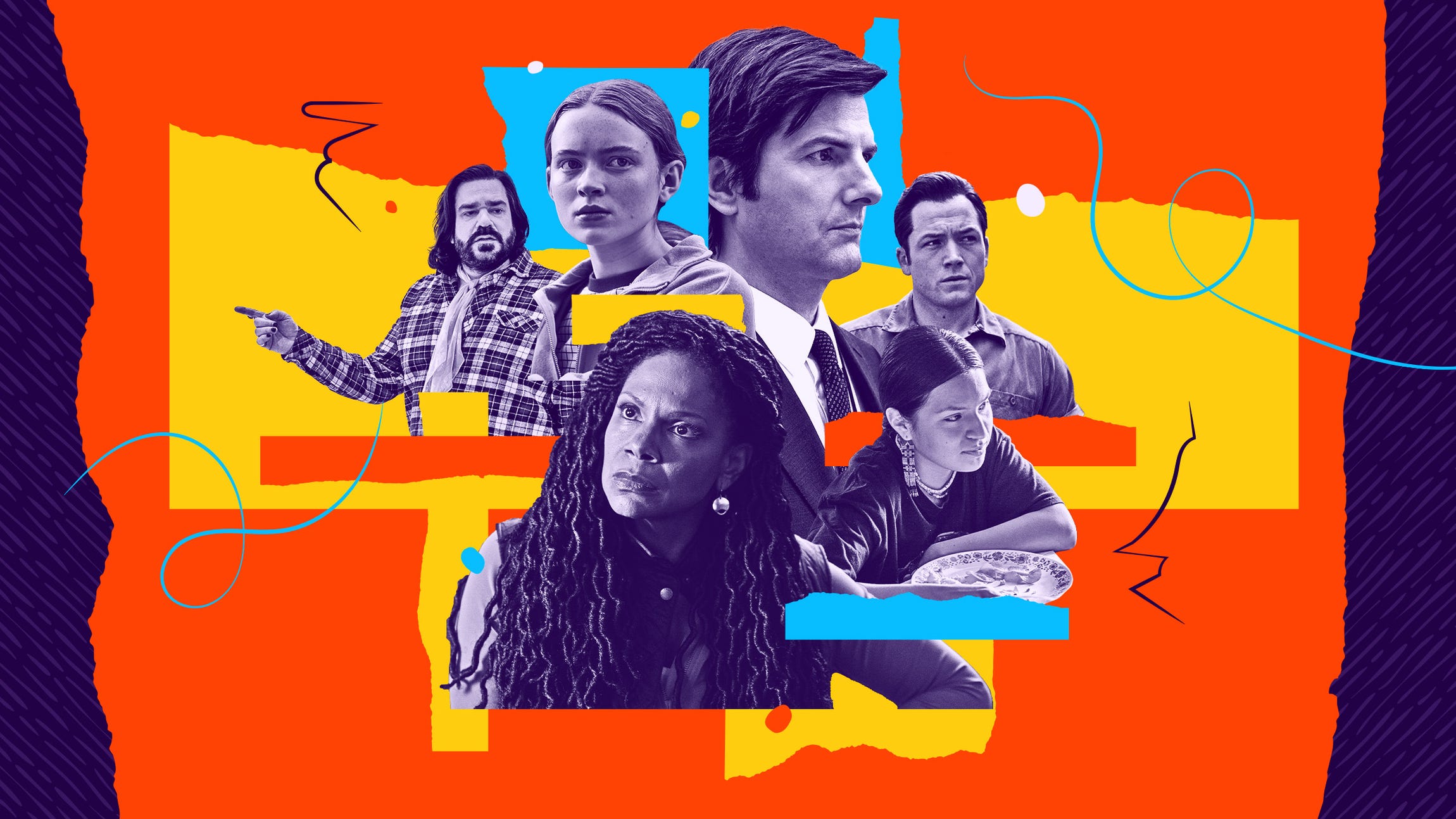
The 20 Best TV Episodes of 2022
These are the hours (and half-hours) we couldn't shake
We don't have time to get into all the reasons why no TV show should ever aspire to be a "10-hour movie," but let this list be a starting point. Great episodes are an art form. Even the most serialized dramas need structure, no matter what some streaming series want you to think. Thankfully, weekly episode release schedules are back in vogue, and the best TV shows are churning out tightly plotted episodes that have something to say on their own. When an hour — or half-hour — of television is really unforgettable, it can change how you see the whole series.
TV Guide's look back on the best of TV in 2022 wouldn't be complete without a tribute to the year's standout episodes. An abundant supply of good TV brought plenty of series that knew how to leave us reeling when the credits hit, from outgoing greats like Atlanta and The Good Fight to new stunners like Severance and The Rehearsal. At least one of them — hello, Stranger Things — was powerful enough to change what we all heard on the radio, even if the rest of the season couldn't recapture that high.
Some of these stories stayed with us all year, and others left a mark late in the game, but all were proof of what a great episode can do for a show. These are TV Guide's picks for the best TV episodes of 2022.
For more, check out our lists of the 20 best shows and 20 best performances of 2022.
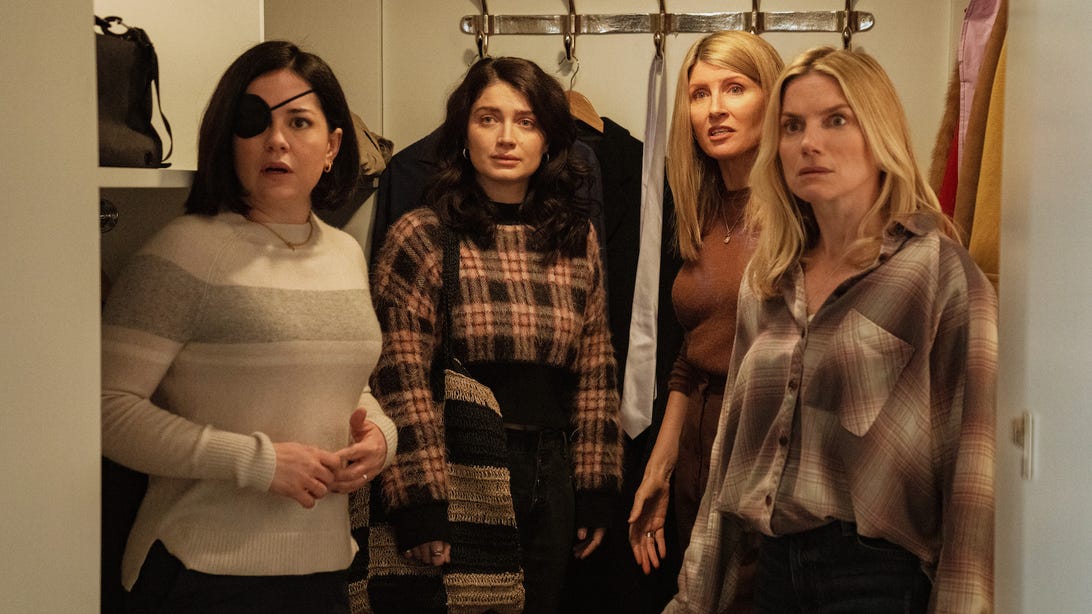
20. "Saving Grace," Bad Sisters
The mystery of which Garvey sister killed the absolutely wretched John Paul (Claes Bang) was never the most interesting thing about Bad Sisters. Its superpower came not just from the fact that it successfully got its audience to root for murder, but from the strength of the relationship between the five women, and the knowledge that Grace's (Anne-Marie Duff) sisters love her so deeply that they would be willing to dedicate themselves to killing her husband just to free her from the life he's imprisoned her in. After a race against the clock (and the life insurance agents), the Season 1 finale uses a couple of beautifully crafted sequences to reveal who dealt JP his ultimate comeuppance, but it's the choice to end on the joyful note of the sisters laughing together that'll stick with me in the long run. -Allison Picurro
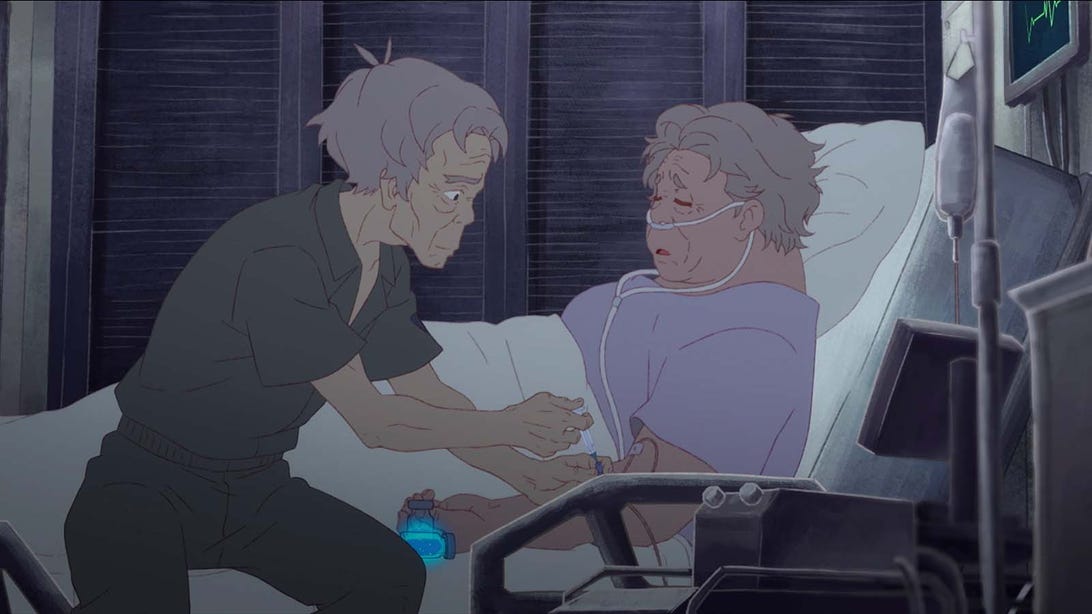
19. "John and Sun-Hee," The Boys Presents: Diabolical
In just 14 minutes, "John and Sun-Hee" does what most episodes can't do in an hour: introduce characters with depth, set up a gripping conflict, and paint a story from beginning to end in a way that pushes the viewer to the brink of tears. We know — crying is not exactly the first reaction that comes to mind when thinking about The Boys. But its spin-off animated series The Boys Presents: Diabolical puts so much heart into this episode, written by Andy Samberg and directed by Steve In Chang Ahn. John (voiced by Randall Duk Kim) and Sun-Hee (voiced by Yuh-jung Youn) are an elderly immigrant Korean couple, and the episode is about the final chapter of their lives. Through its imagery and music — and dialogue rich with cultural references — "John and Sun-Hee" ambitiously pays tribute to the immigrant Korean experience and becomes an ode to unexpected heroes. -Kat Moon
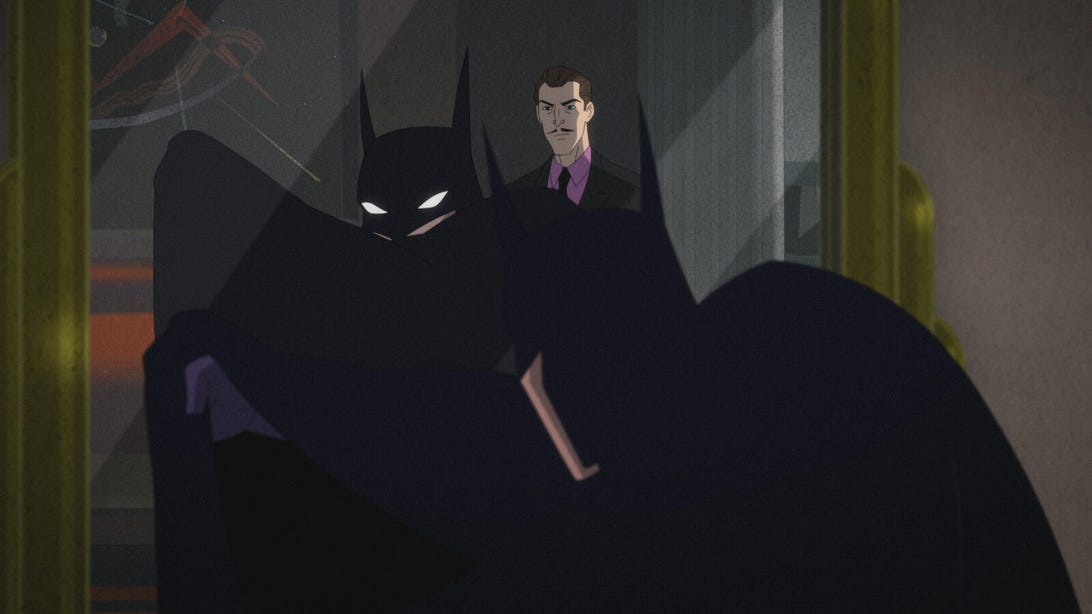
18. "Batman Begins Forever," Harley Quinn
Do you know how Batman's parents died? You should, because it has been covered in essentially every piece of Batman media ever since the Dark Knight started protecting the streets of Gotham. The image of Martha Wayne's beloved pearl necklace falling apart in that dark alley is as synonymous with Batman as the pointy cowl and the Batmobile. Leave it to Harley Quinn, which as a whole should go down next to Batman: The Animated Series as one of the best takes on Batman lore, to make the most exhausted trope in Batman history fresh again. And the show did it by officially beating the trope to death. In the eighth episode of Season 3, Harley (Kaley Cuoco) and her friends take a trip into Bruce Wayne's (Diedrich Bader) mind to figure out where he hid Frank (J.B. Smoove). When they get there, they realize that Bruce's mind is on a trauma loop, replaying his parents' murder on repeat. The gang is forced to watch the Waynes' murder over and over (in front of BTAS original artwork!) with increasingly horrifying and hilarious reactions, until Harley finally manages to get through to a young Bruce. Then, the series does something revolutionary: It explains why those deaths are so important to the Batman ethos on a deep emotional level, rather than just being the catalyst for young Bruce to go learn how to be a vigilante from a bunch of monks. It's a poignant and deeply gratifying reveal of how Bruce's guilt over the murders has shaped his entire psyche, and it's wrapped in one of the most entertaining time loop episodes in recent memory. -Megan Vick
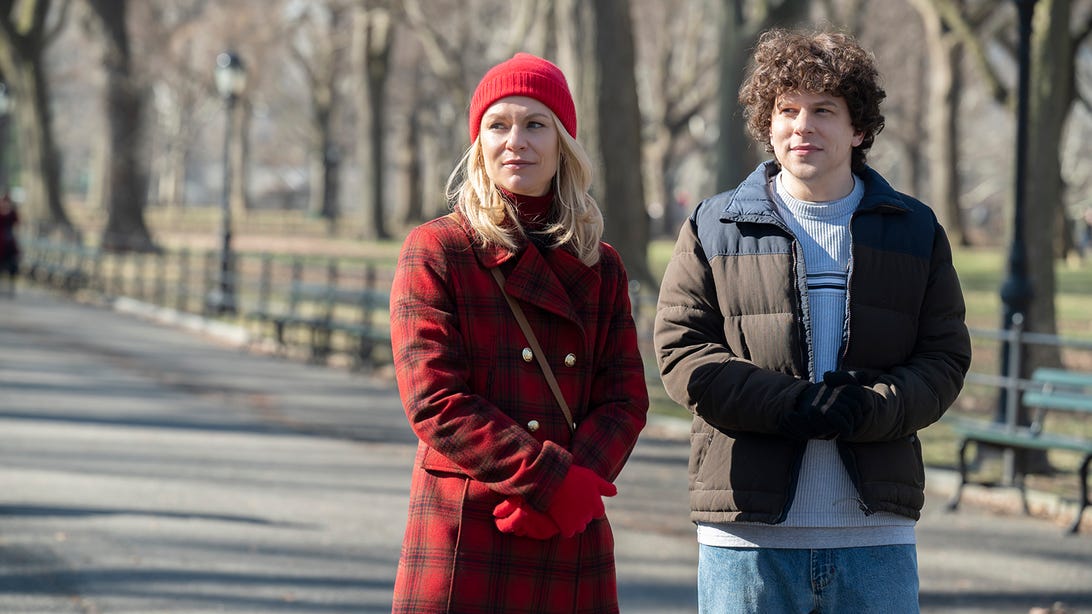
17. "Free Pass," Fleishman Is in Trouble
Summarizing a relationship from beginning to end, with all its peaks and valleys and nuances and perspectives and bad pick-up lines and childbirths and arguments and disastrous dinner parties, in a single episode is no easy task. But "Free Pass," the pivotal third episode of Hulu's Fleishman Is in Trouble, does so by recognizing that each step is just as important the others. Toby (Jesse Eisenberg) and Rachel (Claire Danes) collide at a college party, intertwine through engagement in the years following, make further commitment to each other after Rachel's first pregnancy, feel the momentum of life come to a complete stop from parenthood, and become disentangled as they continue to grow into individuals. As a detailed snapshot of how everything went wrong, it's spectacularly unspectacular; there's no inciting incident, just a series of small, debilitating, all-too-familiar cuts. It's all sold by Danes, who dominates the episode with an arc of extremes that unlocks what Fleishman will become. It's not a show just about Toby. It's a show about a relationship that leaves toxic radiation in its path and how that negative effect influences others. Divorce isn't pretty, but here the relationship cycle is oddly beautiful. -Tim Surette
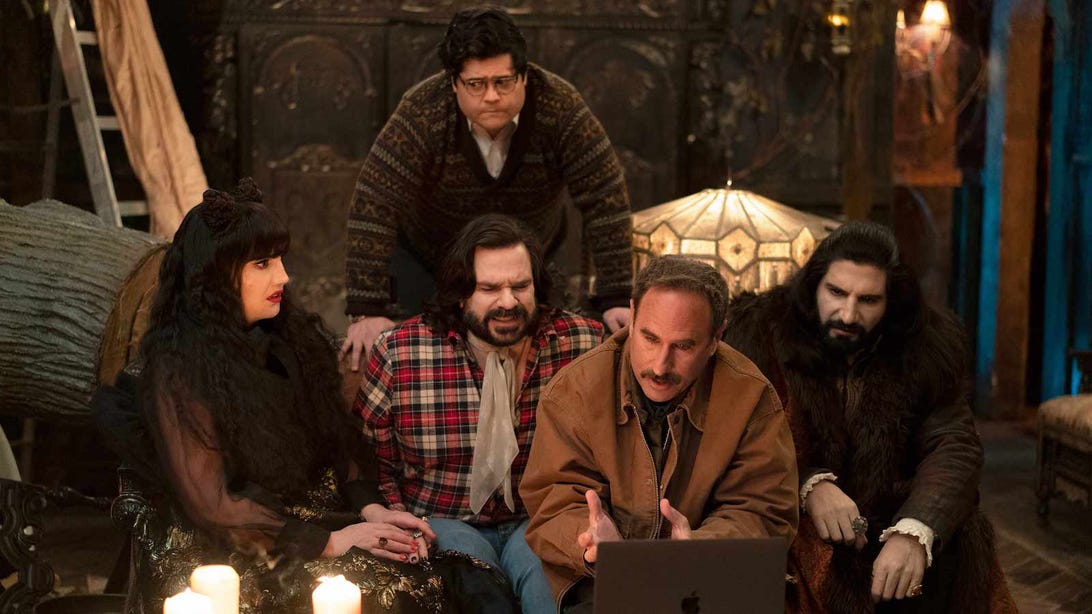
16. "Go Flip Yourself," What We Do in the Shadows
One perfect line delivery from Matt Berry is enough to justify this episode's inclusion on this list. Coming toward the end of What We Do in the Shadows' great fourth season, "Go Flip Yourself" cleverly expands on a joke teased throughout the first seven episodes by bringing Laszlo's (Berry) favorite home renovation series, Go Flip Yourself, to the vampire compound. The usual documentary crew is swapped out for the cameras of Bran and Toby Dalton (Randy and Jason Sklar), the Property Brothers-esque host duo who claim that they're there to help fix up the admittedly dilapidated house, but may have a more devious motive. Berry continues his run as series MVP, having the time of his life donning the quintessential house flipper uniform (plaid shirt and a pair of Timberlands). He's always at his best when Laszlo is allowed to indulge in his own expressions of hedonism. The joke of watching the show's gothic fivesome through an emptily energetic HGTV filter is one that never gets old, making "Go Flip Yourself" one of the funniest half-hours of the year. -Allison Picurro
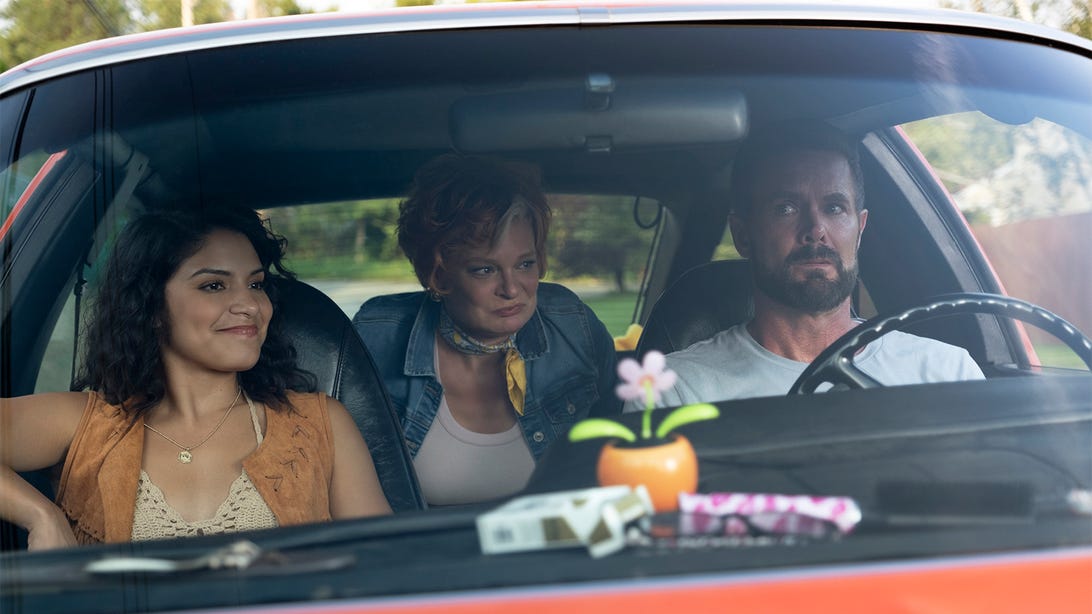
15. "Chapter One," Sprung
Sprung's series premiere is on this list because it's a pitch-perfect period piece about the beginning of the pandemic, and the best example of that emerging genre so far. A lot of shows did pandemic episodes, but creator Greg Garcia's comedy is notable as one of the first new shows to use the start of the pandemic as a jumping-off point for its story in a way that feels reflective rather than reactive (remember when Trump wondered if injecting disinfectant would cure the virus? Sprung does). The pilot captures the uncertainty and surreality of spring 2020 through the eyes of Jack (Garret Dillahunt), who is unexpectedly released from prison after serving 26 years for selling weed into a world that makes no sense. As time passes, there will be many more creative attempts to process everything that happened that spring, but it will be hard for them to do it with as much humor and empathy as Sprung. As the show went on, it kind of got away from the pandemic stuff, but the premiere stands on its own. -Liam Mathews
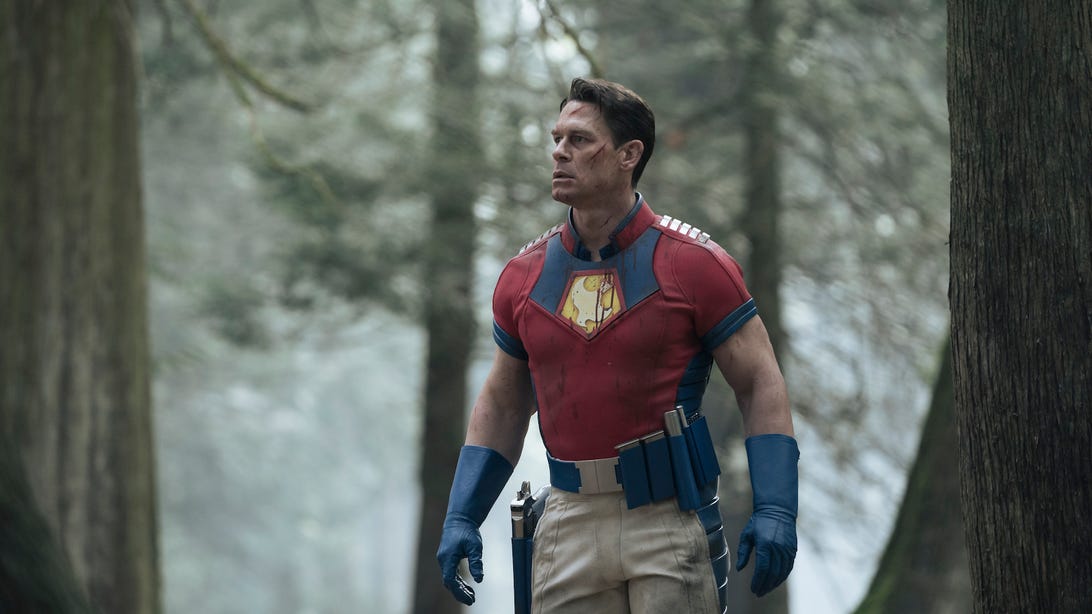
14. "It's Cow or Never," Peacemaker
If this were a list of best opening title sequences of the year, no show would stand a chance against Peacemaker. Since it's not that list, I'll just sing the praises of the rousing Season 1 finale, which saw the superhero series go out with a literal bang as Peacemaker (John Cena) and his ragtag group of friends set out to destroy the Butterflies, the alien species trying to take over the human race. Director James Gunn knows his way around a battle sequence, and he turns the episode's big action set piece into an operatic thrill. His sweeping camera captures brutal decapitations, animated bursts of blood, and the arc of Peacemaker's shield as it soars through the air and right into an alien's chest. A giant cow vomits up its guts. Danielle Brooks human torpedoes into a wall. Daddy issues are confronted. By the time a certain group of heroes belatedly make a post-battle cameo, you barely care: Peacemaker the hero doesn't need their help, nor does Peacemaker the series, both entirely capable of standing on their own. -Allison Picurro
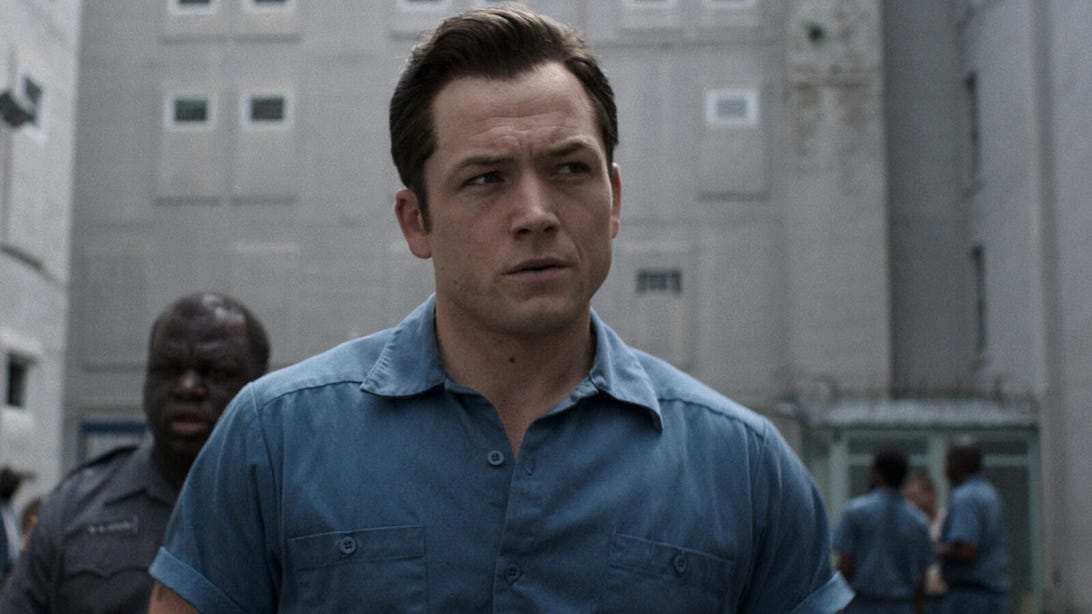
13. "The Place I Lie," Black Bird
The penultimate episode of Apple TV+'s criminal profiler/true crime/gangster drama/prison series has at least three moments that could work as devastating episode-ending scenes, but packaged all together in succession they make for one of the best TV episodes of the year. With Jimmy Keene (Taron Egerton) finally about to achieve his goal of working a confession out of incarcerated serial killer Larry Hall (Paul Walter Hauser) to get his own prison sentence commuted, writer Dennis Lehane takes the focus off them and puts it on a character all too often ignored in shows like these: the victim, Jessica Roach, a 15-year-old girl raped and murdered by Hall. Black Bird breaks series form by carefully presenting flashbacks to the life Roach lived, narrated in past tense by a reverent Roach happy she got to do such normal things: beach vacations with her sister, innocent flirtations with a boy, freeing bike rides through the country. Suddenly, she's more than a name on a police report, and the weight of Hall's crime smothers the viewer. Placed alongside Hall's chilling and matter-of-fact confession and Jimmy's subsequent emotional breakdown for Roach, it's one of the few episodes of a murder mystery that don't make the murder a mere plot point. -Tim Surette
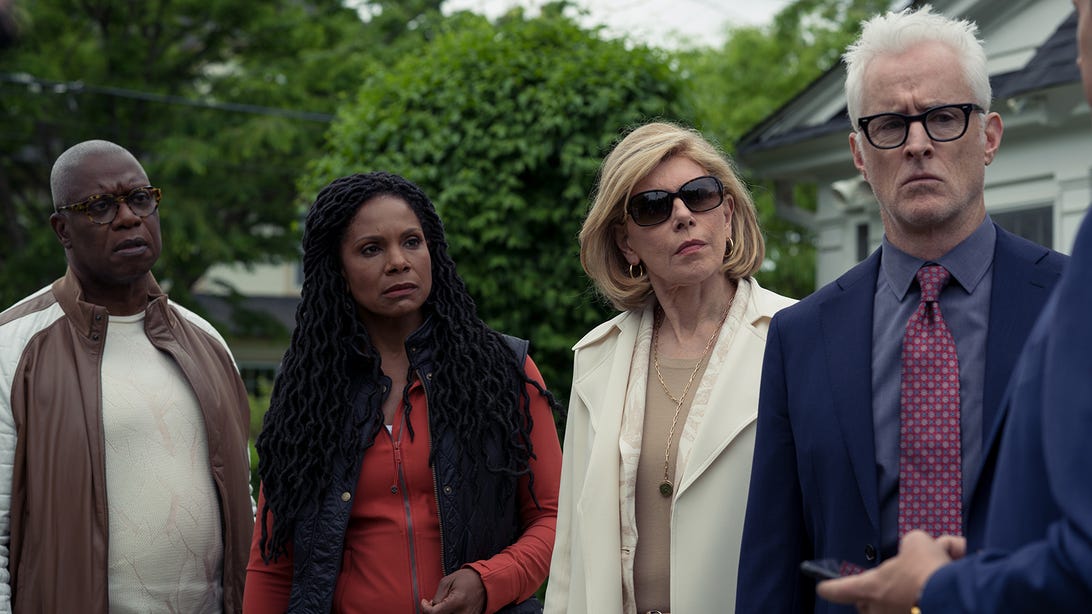
12. "The End of a Saturday," The Good Fight
There was never going to be a good time to say goodbye to The Good Fight, a show so timely it's still beating the headlines to the punch, but at least it went out in style. In a final season that hummed with violence and unrest, Robert and Michelle King's legal drama took a breather — kind of — to put a fresh spin on a workplace drama staple: an episode where the gang has to work on a Saturday. In this one, Season 6 addition Ri'Chard Lane (the always great Andre Braugher) rallies everyone at the firm to pull some strings to save his nephew after the boy's bone marrow donor backs out at the last minute. A sick kid's life is on the line — not exactly a funny setup. But "The End of a Saturday" finds sly, dark humor in the hoops they have to jump through and the rules they have to bend just to make the American healthcare system do its job. It's a fitting monument to The Good Fight's favorite things: righteous anger and organized chaos. -Kelly Connolly
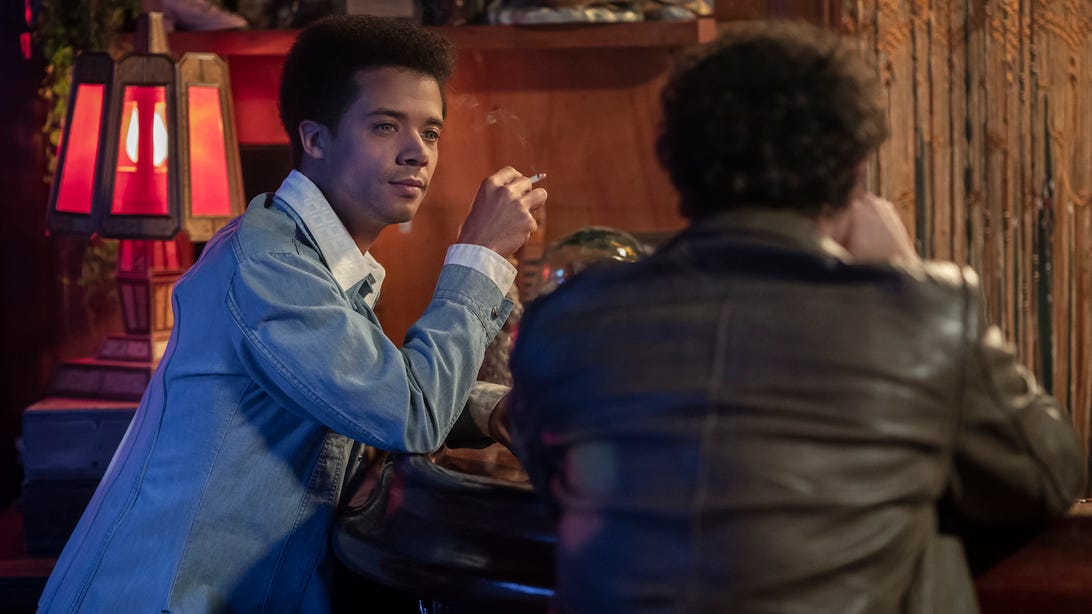
11. "Like Angels Put in Hell by God," Interview with the Vampire
Interview with the Vampire begins and ends so strongly that there's a temptation to forget all the magic that came in the middle, but Season 1's penultimate episode is the one I keep returning to. Louis (Jacob Anderson) tells Daniel (Eric Bogosian) about the melancholy aftermath of surviving Lestat (Sam Reid) violently throwing him out of the sky, how a matured Claudia (Bailey Bass) cared for him, and how he eventually fell right back into his corrosive romance with Lestat. It's the easiest episode to point to when discussing what makes this show great, letting Anderson play an all new shade of Louis during a flashback to the '70s, allowing Reid to run wild with Lestat's sociopathic tendencies, and continuing the show's explorations of the manipulation of memory and fractured family politics. To put it plainly: Louis swam across the Mississippi River just to confront Lestat for writing him a ridiculous song and you expect us not to single out this episode? -Allison Picurro
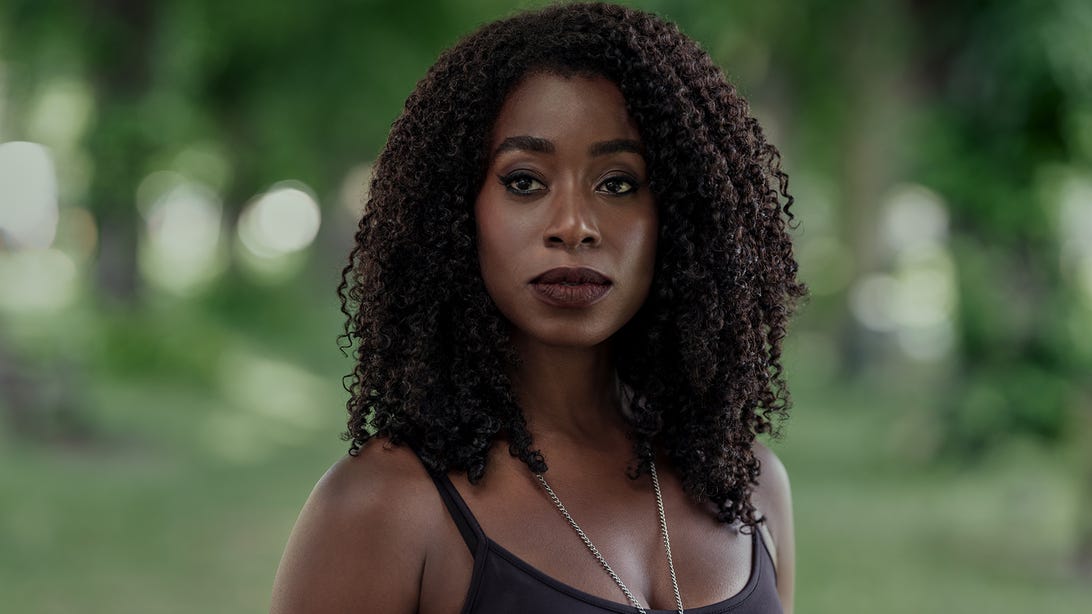
10. "The Sound of Her Wings," The Sandman
Tucked away in the middle of a season of dense fantasy world-building and decadent interplanar drama is The Sandman's beautifully human standalone episode "The Sound of Her Wings." Adapted faithfully from two of Neil Gaiman's comics, the episode's two stories challenge our notion of the inescapable grip of death. The first half follows the series' protagonist and edgelord, Dream (Tom Sturridge), as he accompanies his sister Death (Kirby Howell-Baptiste) — yes, THAT Death — while she goes about her workday welcoming souls to the afterlife. But Death isn't a fearful figure. Instead, she's revered as a calming presence that steadies those ready for the ultimate transition. But the second half sees Dream run a little experiment with a man who claims he wants to live forever; Death spares him, on the condition he meet with Dream every 100 years in the same spot. While Dream expects the man to beg for death at any moment, the man cherishes his immortality, living each century to the fullest, and Dream finds himself something extremely rare: a friend. The two stories work off each other as different sides of the same coin — you can accept death while also embracing life — waxing poetic about a difficult subject that fascinates and terrifies us all. -Tim Surette
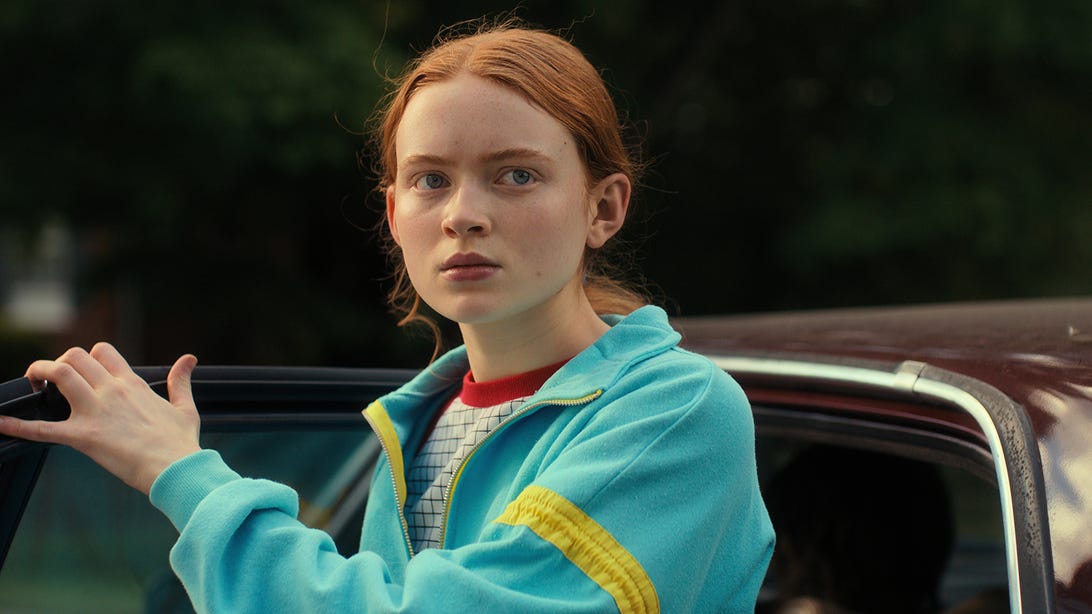
9. "Chapter Four: Dear Billy," Stranger Things
Sadie Sink's anguished teen Max Mayfield was the heart and soul of Stranger Things 4, and this showcase episode is a large part of why. With her heartrending speech at her late brother Billy's (Dacre Montgomery) grave and her thrilling escape from Vecna's clutches, Max became Stranger Things' most emotionally complex character and made Kate Bush's classic "Running Up That Hill" into one of the biggest songs of the year, and Sink established herself as a major talent. Plus, Robert Englund showed up for a stunt cameo that worked perfectly, scaring the bejesus out of Nancy (Natalia Dyer) and Robin (Maya Hawke) in a role that was part Freddy Krueger, part Hannibal Lecter. -Liam Mathews
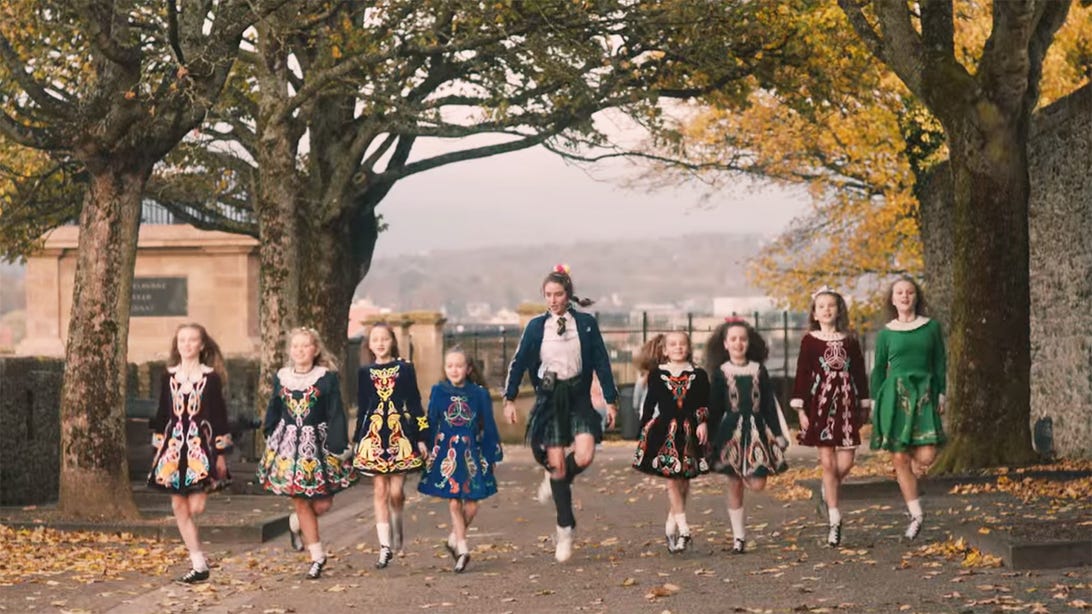
8. "The Agreement," Derry Girls
One last time, Derry Girls wrote teen angst into the history books. The riotous Northern Irish comedy (now Martin Scorcese approved!) signed off with an episode that split its time between rapid-fire jokes and sincere reflections on growing up in times of conflict — an uneasy balance for any other show, but for Derry Girls, that's life. Series finale "The Agreement" tackles the Good Friday Agreement of 1998, as well as the equally important compromise that is Erin (Saoirse-Monica Jackson) and Orla's (Louisa Harland) joint 18th birthday party. It ends with the show's most powerful sequence, which intercuts historical footage with the characters casting their votes on the referendum. (Liam Neeson, reprising a guest starring role, is brilliant without saying a word.) At some point, every teen comedy has to choose between keeping its characters forever young and guiding them to adulthood. Derry Girls walks just past the line and then stops, leaving the Derry Girls on the brink of not only adulthood but a new future for Ireland. Their lives are still changing every day, as The Cranberries prophesied. -Kelly Connolly

7. "Review," The Bear
Very long takes have been done so many times in film and television that they're a cliché unto themselves and not inherently impressive on their own. TV shows doing one-take scenes post-True Detective have to work extra hard to justify the stylistic indulgence with content that necessitates the form. The team behind The Bear did that in "Review." Most of the episode takes place in one unbroken, nearly 18-minute take that amps the dramedy's Scorsesean anxiety to an unbearable level, capturing in real time the complete and utter Murphy's Law collapse of a restaurant kitchen set to Wilco's tension-and-release krautrock epic "Spiders (Kidsmoke)." I've seen a lot of oners, but I've never seen a oner like this. -Liam Mathews
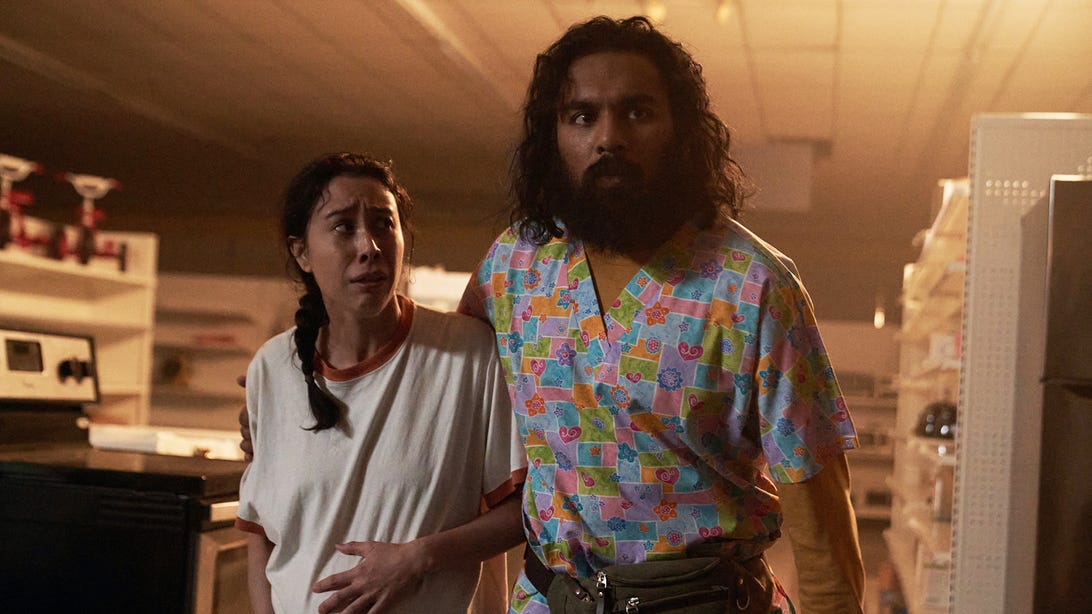
6. "Dr. Chaudhary," Station Eleven
By the end of "Dr. Chaudhary," Jeevan (Himesh Patel) has his brother's limp and his sister's job. He gets the limp after he's mauled by a wolf. He gets the job after he's kidnapped by a group of heavily pregnant women who think he's a doctor, a rarified profession since most of them died in Station Eleven's souped-up pandemic. When Jeevan becomes Dr. Chaudhary, coaching the women as so many of them give birth on the same night, it's one of the year's most dazzling scenes — frank and agonizing but also joyful. (Dan Romer's score soars with strings and vocals like a spontaneous sing-along.) The refrain throughout the episode is that trying to help is the same as helping; as the group's only (other) doctor puts it, "The courage to bear witness to death is the job." That doctor took her husband's name after he died so she wouldn't miss him so much, and now Jeevan is carrying on his siblings' legacies. Maybe survival has to be brutal in order to be hopeful. -Kelly Connolly
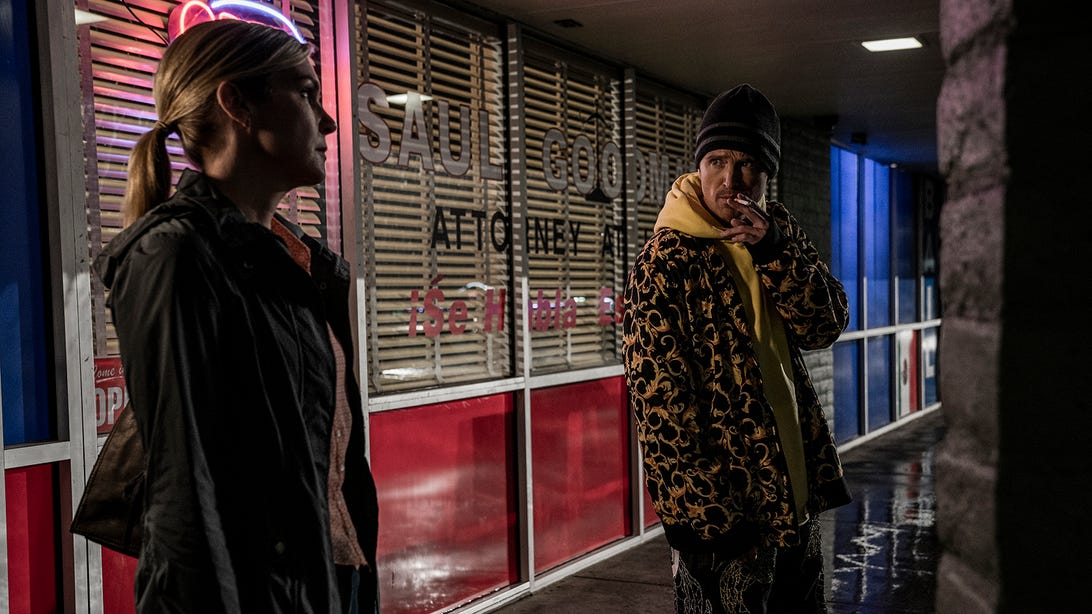
5. "Waterworks," Better Call Saul
Nothing on TV this year was as unconventionally devastating as "Waterworks," the penultimate episode of Better Call Saul's final season. I could point to its big-picture bleakness: Kim Wexler (Rhea Seehorn), after years of punishing herself for her role in Howard's (Patrick Fabian) death, searches for punishment from the justice system she once trusted and comes up empty. It's the cynical flip side of Saul's moderately hopeful finale; here, there is no moral meaning in suffering. But it's the personal stuff that sticks: Kim's Floridian makeunder, her Miracle Whip boyfriend, and, most violently, her loss of faith in her voice, to the extent that she can't even speak up about ice cream flavors. Jimmy (Bob Odenkirk), meanwhile, has fallen so far it looks like he might kill Carol Burnett. The people you once loved can become unrecognizable — it's hardly a new idea for the Better Call Saul universe, but writer-director Vince Gilligan makes it hit with fresh force. In a scene set just after she and Jimmy sign the divorce papers, Kim shares a smoke with Jesse Pinkman (Aaron Paul), the world of Breaking Bad taking shape in the neon glow outside Saul's office. Jesse judges Saul for his tacky commercials while Kim stares into the night, knowing Saul Goodman was partially her creation. All that's left is to look upon her own works and despair. -Kelly Connolly
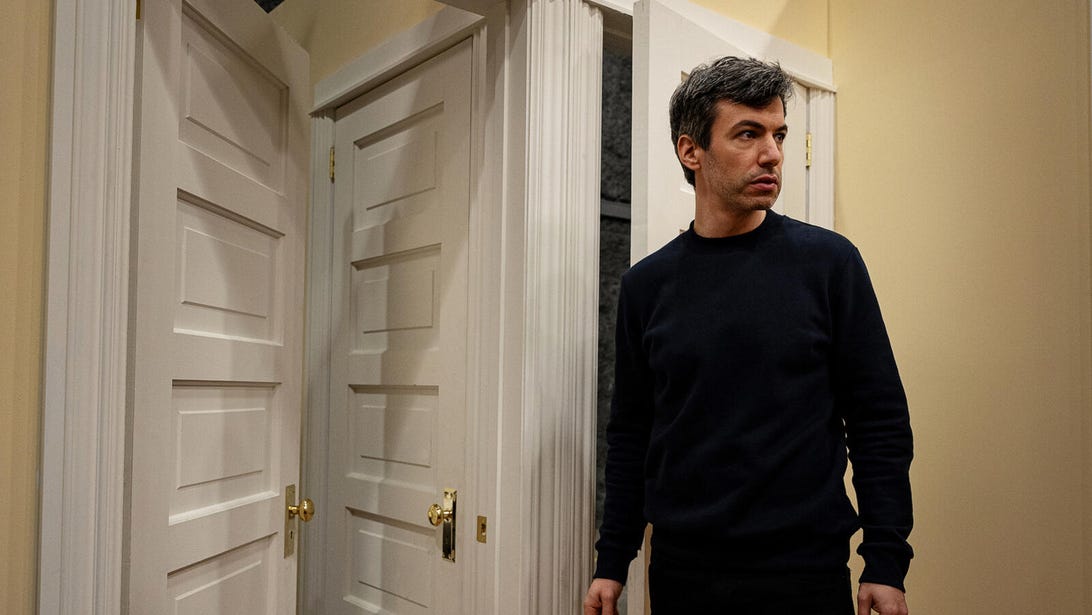
4. "Orange Juice, No Pulp," The Rehearsal
They should hang the series premiere of The Rehearsal in the MoMA. The way the episode unfurls the conceit of Nathan Fielder's reality comedy — Fielder helps people prepare for emotionally stressful life events by constructing insanely elaborate simulations of those events — is astonishing, as is the surreal extravagance of the show's 1:1 recreation of a Brooklyn bar to help an anxious man named Kor prepare to tell his trivia buddy he lied to her about having a master's degree. Fielder stages a carefully planned environment where unexpected things are bound to happen, which leads to moments of soul-leaves-body transcendence, like Kor's perplexed response to Nathan revealing that his entire side of their first conversation was scripted. -Liam Mathews
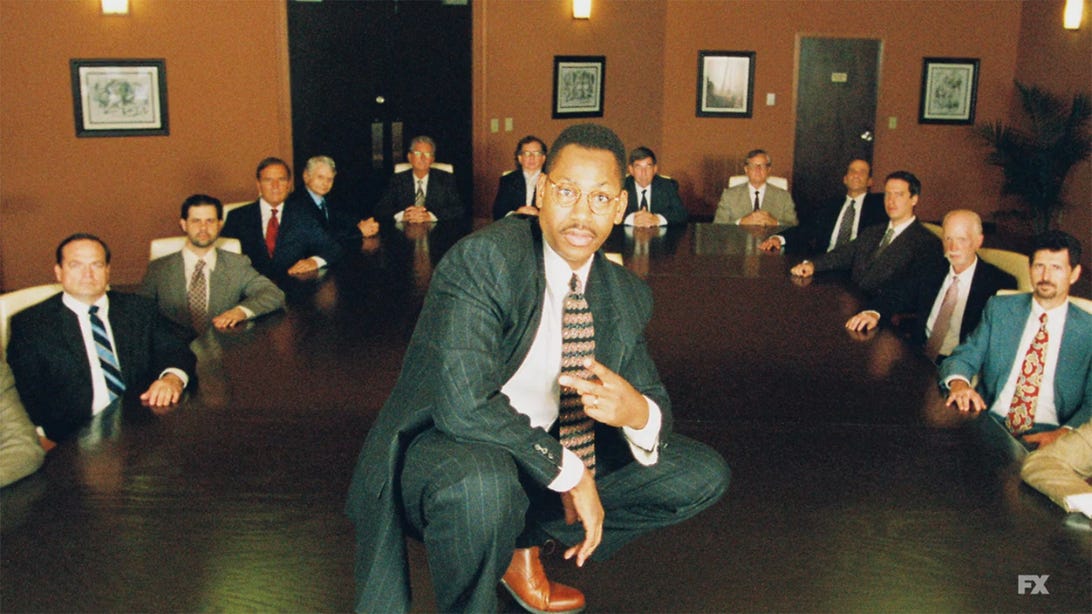
3. "The Goof Who Sat by the Door," Atlanta
This standalone episode from Atlanta's fourth season takes the form of a fake documentary about a Black animator named Thomas Washington who was mistakenly promoted to CEO of Disney and used his position to make A Goofy Movie, "the Blackest movie of all time." It satirizes the "documentary reevaluating a cultural event from the 1990s" subgenre perfectly; if you didn't know it was an episode of Atlanta, it would be indistinguishable from a real documentary. It's all the things Atlanta was so good at doing, at once hilarious, sad, provocative (they couldn't have done this if Disney hadn't bought FX), culturally observant, and free to be anything it wants to be at any given moment. -Liam Mathews

2. "Offerings," Reservation Dogs
"I look at you and I see him, you understand?" In "Offerings," the astonishing penultimate episode of a stellar season, the line works two ways. Willie Jack (Paulina Alexis) has gone to prison to visit her aunt Hokti (Lily Gladstone, in a terrific guest turn), looking for a way to bring her grieving friends back together. What Hokti means is that seeing Willie Jack is a painful reminder of her son's death. But what the episode suggests is that Daniel also lives on in her. The centerpiece of "Offerings" is this prison visit, a 13-minute scene that builds and builds until it's overpowered with emotion when Hokti connects Willie Jack with their ancestors in prayer. It's a spiritual encounter that also comes with a simpler suggestion: to share food with the people she wants to help. The whole second season of Reservation Dogs is heavy with the understanding that so many lives are altered when one person dies. When healing comes, it's both profound and mundane. -Kelly Connolly
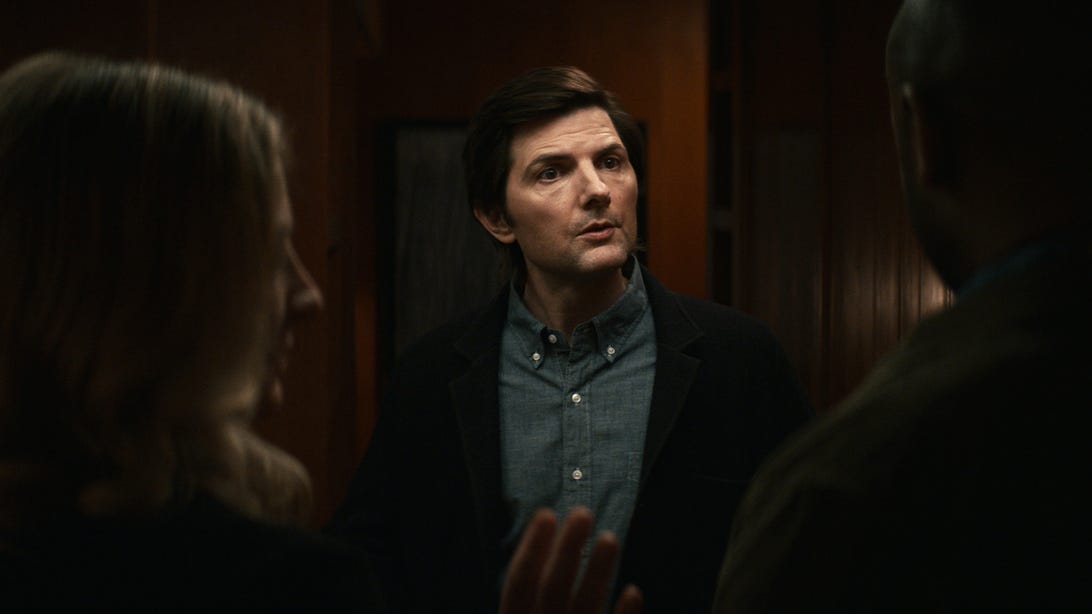
1. "The We We Are," Severance
A 40-minute seizure. A heart attack for two-thirds of an hour. The closest you will get to experiencing G-forces on your couch. That's the best approximation of what it feels like to watch Severance's searingly intense Season 1 finale. But those palpitations, teeth grinding, and hyperventilations make you feel alive, like riding a wooden roller coaster thrown together with loose screws. The big difference with "The We We Are" is that a roller coaster usually lasts for about 90 seconds, yet director Ben Stiller, writer/creator Dan Erickson, editor Geoffrey Richman, cinematographer Jessica Lee Gagné, and unsung hero composer Theodore Shapiro manage to keep that stomach-in-your-throat feeling of that first precipitous drop going for the entire duration with a relentless score, multiple near misses, and world-breaking reveals.
But "The We We Are" accomplishes something that might be an even rarer feat: It confirms that Severance is every bit as good as you thought it was in the previous eight episodes. The technical triumph works in tandem with the realized escape plan of Severance's innie characters, who are each given ample season sendoffs as they're dropped into the world of the outies. Perspective is key here, and Stiller's camerawork swings and pulls between closeups of each character's face and their own point of view, fully immersing us into the disorientation of these visitors to a strange new world. And then Erickson caps it off with the best final line of dialogue since Jack said "We have to go back" in Lost: "She's alive!" "The We We Are" is the season's shortest episode, but it feels like the longest. -Tim Surette
Honorable mentions: "starting now," Barry; "Stand Still Like the Hummingbird," Euphoria; "The Demon of Parenthood," Evil; "Happy Valley," For All Mankind; "The Lord of the Tides," House of the Dragon; "Egyptian Cigarettes," Ramy; "As to How They Might Destroy Him," The Righteous Gemstones; "Y Tu Julio También," This Fool; "Doomcoming," Yellowjackets
Keep the celebration of the best TV of 2022 going!
Check out TV Guide's roundups of the best shows and best performances of the year.

